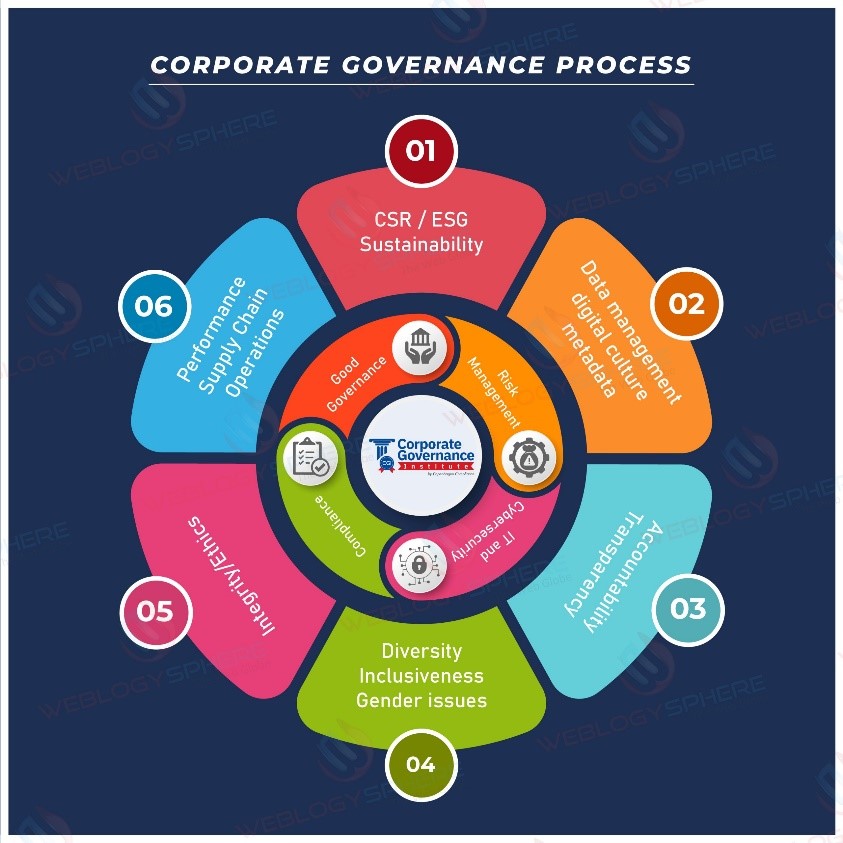By Kersi F. Porbunderwalla, CEO, The Corporate Governance Institute
The updated concept of corporate governance pivots around integrity, responsibility, accountability, transparency, and ethics (IRATE). These components can ensure that non-compliance to the Good Governance codex is not an option for senior management and the board of directors.
Every organisation’s process, policy or procedure must include multiple elements of good corporate governance. Corporate governance is a means to achieve Corporate Excellence if all 70+ components of good governance are embedded in the organisation. The IRATE components of Corporate Governance focused on developing actions that have several advantages.
- Help to create a good brand image for the company.
- Successful brand image results in corporate trust and brand loyalty
- Employee commitment, stakeholder engagement and customer loyalty will result in a more significant commitment to the employees
- When there’s a commitment, the stakeholders and management/employees will turn more creative.
Sound Business Practices and IRATE Governance go hand in hand
Creativity is vital to get a competitive edge in the current competitive atmosphere. Therefore, management must ensure that IRATE Governance results are embraced and adopted to promote the development of products and services. Therefore, IRATE governance must be integral to the existence of a company.
- It begins with how a corporation is administered or controlled by focusing on the IRATE components of Good governance. Then, it will inspire and strengthen investors’ confidence by assuring the company’s commitment to high growth and earnings.
- The performance of IRATE components will aggravate the need to change the corporate governance concept that deals with achieving the primary objectives of corporate governance.
- The IRATE corporate governance processes and systems aim to achieve the specific goals of fulfilling owners’ long-term strategic stakeholder claims.
- Take care of the interests of employees.
- Consider the atmosphere and regional community to maintain outstanding relations with suppliers.
- To fulfil all the applicable legal and regulatory conditions that focus on sustainability.
IRATE advantages are gathered from the brand image, loyalty and commitment rewards
Therefore IRATE Corporate governance is about how corporations are transparent, supervised, managed, controlled and held accountable to the shareholders and all stakeholders.
With the rapid pace of globalisation, many companies have been forced to utilise international financial markets and face greater competition than before, to be global and look for growth. Therefore, management must be aware of the importance of improved international standards of Corporate Governance that focus on IRATE. Corporate policymakers and business managers can achieve global advantages by establishing IRATE procedures for proper control of, e.g. bribery/corruption and sustainability, supervision of information flow in the company (disclosures)

Implementing proper and adequate operation for IRATE checks and balances
IRATE procedures can be used for resolving and conforming different corporate participators’ clashing interests and opinions. The implemented operation ensures the responsibility of the Board of Directors to all stakeholders of the corporation, i.e. managers, shareholders, suppliers, creditors, auditors, controllers, workers, guests and society in general, for giving the company a fair, transparent and productive administration.
IRATE processes are not mere company administration but a corporate governance and administration system that focuses on the established code of conduct for a corporate entity’s sustainable management and proper functioning.
IRATE governance techniques wisely and participating in results, any organisation can motivate all stakeholders toward the corporation’s goals by demonstrating the advantages to stakeholders of the IRATE success. Therefore, good governance is good business. The focus on IRATE will provide significant efforts from management and the board to take the organisation forward and maximise future value and shareholders’ wealth.

